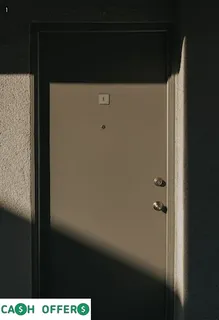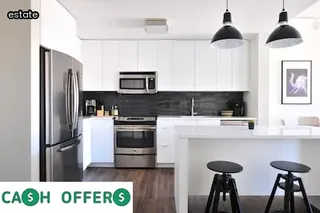As a landlord in Florida, it is important to understand the basics of landlord-tenant issues when it comes to tenant damage to your property. There are specific laws and regulations that dictate how landlords can handle tenant damage, so it is important to be aware of them.
One of the first steps a landlord should take is to create a written rental agreement that clearly outlines any potential damages and their consequences. This will help both parties know what to expect if any damage occurs.
Additionally, landlords should also familiarize themselves with the state statutes related to tenant damage and security deposits so they can take appropriate action if necessary. It's also important for landlords in Florida to document any damages, including photos or videos, as evidence that could be used in court if needed.
Lastly, landlords must follow all procedures outlined in the law when dealing with tenant damages; failure to do so could lead to serious legal repercussions.

Screening tenants is a crucial part of being a landlord in Florida. It’s important to establish a set of criteria for potential tenants and use background checks and other methods to verify that they meet the standards.
This includes looking into their rental history, criminal records, employment status, and credit score. Landlords should also perform an in-person interview to assess the tenant’s personality and ensure that they will be a good fit for the property.
Taking references from former landlords or employers can help provide additional insight into how reliable a prospective renter may be. Additionally, requiring potential tenants to sign a lease agreement that outlines the rules for tenants can help protect both parties if there are any disputes down the line.
Ultimately, screening tenants is an essential part of protecting property in Florida and ensuring that legal obligations are met.
Good communication between a landlord and tenant is essential for success. As a landlord, it is important to be proactive in establishing clear lines of communication with your tenants.
Set expectations from the beginning of the tenancy by providing a written lease that outlines the rules and responsibilities for both parties. Make sure you discuss any potential issues that may arise during the tenancy, such as pet ownership or parking restrictions.
It is important to keep tenants informed of any changes in rental prices or property inspections. Be available when they need assistance.
Regularly check-in with tenants to make sure they are happy with their living conditions, and respond quickly to maintenance requests or tenant damage to property. Explain the consequences if they do not meet their obligations under the lease agreement, as well as possible remedies if there is an issue.
Establishing good communication between landlord and tenant will help set up a successful relationship and ensure that everyone understands their roles and responsibilities.

Documenting the condition of a rental property prior to move-in is essential for landlords in Florida. Doing so protects both the tenant and the landlord should any damage occur during the tenancy period.
A comprehensive record which details all existing damages, if any, should be completed with both parties signing off on it before move-in. This document should include photographs or videos taken at the time of inspection to serve as evidence.
Any areas of concern such as water damage, scuff marks on walls, or stains on carpeting should also be noted down and signed off by both parties. Landlords should further consider offering tenants an inventory list that details all furniture and appliances present in the property at move-in.
Taking these necessary steps ensures that tenants are aware of what is expected upon vacating and can help avoid disputes over damage costs later down the line.
When considering how to handle tenant damage to property in Florida, a landlord's guide should always address the importance of determining substantial security deposits for tenants. First and foremost, landlords must assess the value of their property, including any furnishings which may be included in the rental agreement.
This value should then be multiplied by a certain percentage or multiple price point that accurately reflects the estimated cost of repair or replacement in case of tenant damage. Furthermore, it is recommended that landlords require an additional deposit for pets and other potential hazards.
These deposits should be clearly outlined in the rental agreement, as well as any fees charged for cleaning or repair work done on behalf of the tenant. Finally, landlords can further protect against unforeseen damages by obtaining insurance coverage that covers tenant-related damages not covered by tenant deposits.

As a landlord in Florida, it is important to create a lease agreement that protects both parties from tenant damage. This document should clearly define the expectations of the tenant, including details about who is responsible for any repairs or replacements due to damages caused by the tenant's negligence.
Consider specifying that any normal wear and tear to the property is not the responsibility of the tenant, but any additional damage must be paid for by the tenant. It is also important to include language in your lease agreement that describes how and when a tenant can be held accountable for damages beyond normal wear and tear.
Additionally, make sure that your lease agreement outlines how much notice will be given if you plan to inspect your rental property or if you are considering evicting a tenant due to damage caused by them. By taking these steps and creating an effective lease agreement, landlords in Florida can protect their property from tenant damage while also setting expectations for tenants.
As a landlord in Florida, it is important to ensure tenants understand their rights and responsibilities. This can be done through regular communication with the tenants, informing them of their obligations such as paying rent on time, maintaining the property to a certain standard, and abiding by local legislation.
It is also important to remind tenants that they are responsible for any damage caused to the property during their tenancy, and that they must contact the landlord immediately if there is any damage. If the tenant fails to follow these rules, they could face eviction or other legal action.
Landlords should make sure tenants are aware of their right to repair minor damages to the property themselves. However, this should be done with caution as some repairs may require professional expertise and materials which can be costly for the tenant.
Ultimately, educating tenants on their rights and responsibilities can help landlords avoid costly disputes relating to tenant damage in Florida.

Unsafe living conditions can be a major issue for landlords in Florida, and being aware of what constitutes as such is important. Anything that could potentially harm the health or safety of tenants should be addressed immediately.
This includes mold, infestations, faulty wiring, lead paint, asbestos, inadequate ventilation or temperature control, windows without screens or bars to prevent people from falling out, no working fire alarms or smoke detectors, and any other condition that could lead to illness or injury. Landlords should also ensure that the property is free from dangerous substances such as drugs or weapons.
It is imperative that landlords properly maintain their rental units to keep tenants safe and healthy.
As a landlord in Florida, it is important to be aware of the role that maintenance plays in preventing tenant-caused damage to your property. Before tenants move in, do a thorough inspection of the unit and address any possible repairs.
This will help you identify any existing damage that may have occurred prior to the tenancy and make sure it is not attributed to the tenant later on. During the tenancy, regular maintenance visits should be scheduled so that any potential wear and tear can be addressed before it becomes a major issue.
After tenants move out, make sure to inspect the property again to identify any damage caused by the tenant while they were living there. Having proper documentation of pre-existing and post-existing conditions will make dealing with tenant damage much easier if it ever comes up.
In Florida, a landlord has the right to sue a tenant for damages caused to their property. Depending on the extent of damage, the landlord may be able to recover costs associated with repairing or replacing the damaged item.
In some cases, this amount may exceed the security deposit paid by the tenant. In order to make a claim against a tenant for damages, landlords must first provide written notice that outlines what repairs need to be made and how much it will cost.
If payment is not received in full within 30 days from when the notice was sent, then landlords may proceed with legal action. Additionally, landlords should keep detailed records of any damage done to their property by tenants and take photos as evidence if possible.
With this information at hand, landlords can decide whether or not they want to pursue a lawsuit in Florida and seek damages for any losses incurred due to tenant negligence.

When it comes to handling tenant damage to property in Florida, a landlord's biggest concern is often what they can charge for damages. While the amount a landlord can charge for damages depends on the severity of the damage and the type of rental agreement in place, there are some general rules of thumb that landlords must abide by.
In most cases, landlords may not charge more than two months’ rent as compensation for damages. Additionally, charges for tenant-caused damage must be reasonable and must reflect actual costs incurred by the landlord due to repairs or replacement of the damaged property.
Landlords should also be aware that if their tenant disputes the amount charged for damages, they may have to go through an arbitration process or even take legal action to collect payment.
Under Florida property damage law, landlords have certain rights and obligations concerning tenant damage to their properties. Landlords must adhere to the rules and regulations under Florida Statute 83.
51, which define the landlord's responsibilities in repairing damage or deducting money from a tenant's security deposit. The statute also outlines what types of damages are not the responsibility of a tenant and which ones require compensation by the tenant.
Additionally, if a landlord chooses to withhold money from a security deposit for repair costs due to tenant damages, they must provide written notice to the tenant within 30 days of the end of tenancy. Lastly, landlords in Florida have up to 15 days after receiving payment from tenants for repairs caused by tenants to return any remaining balance of the security deposit back to the tenant.
In Florida, a landlord can charge tenants for damages to their property up to one year after the tenant has moved out. This is because in Florida, landlords are allowed to process a claim for damages against a tenant's security deposit up until one year after the tenant vacates the residence.
In order to protect their property from any potential damages or losses, it is important for landlords in Florida to promptly inspect and assess their rental units once the tenant has vacated. If any damage is found, landlords should keep thorough records of all costs related to repairs or replacements due to tenant negligence before filing a claim against the security deposit.
Additionally, Florida landlords must provide tenants with an itemized list of any deductions taken from the security deposit within 30 days of the tenant vacating the property. It is also important for landlords in Florida to remember that they cannot deduct more than what was agreed upon in the lease agreement when it comes to damage charges and that they must abide by state law when handling such claims.